22+ Sample Self Assessment Plan
-
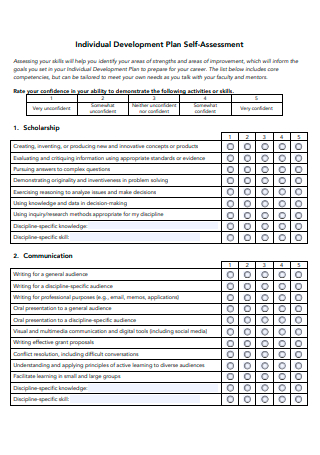
Self-Assessment Individual Development Plan
download now -
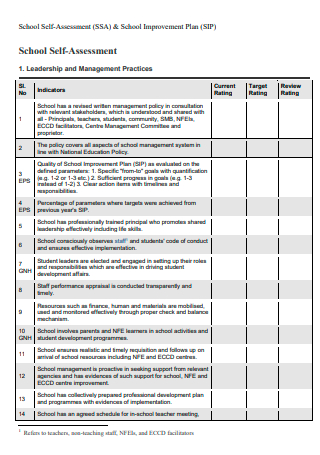
School Self-Assessment Plan
download now -
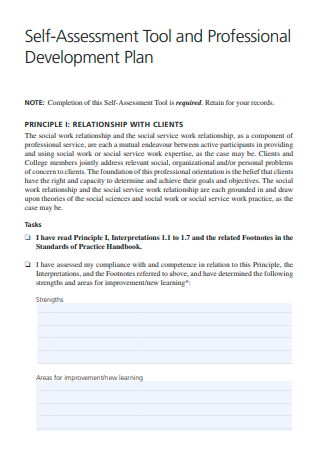
Self-Assessment and Professional Development Plan
download now -
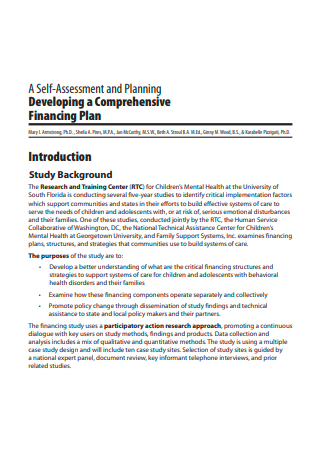
Self-Assessment Planning Example
download now -
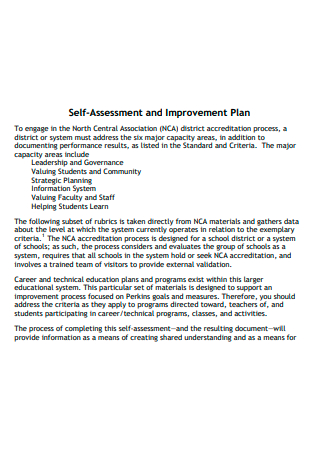
Self-Assessment and Improvement Plan
download now -
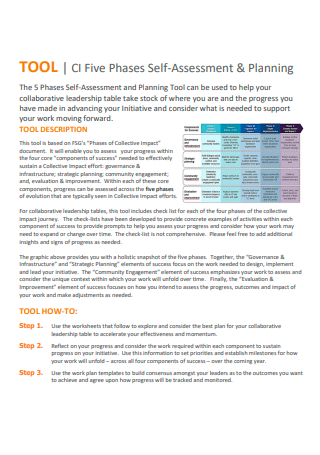
Basic Self-Assessment Planning
download now -
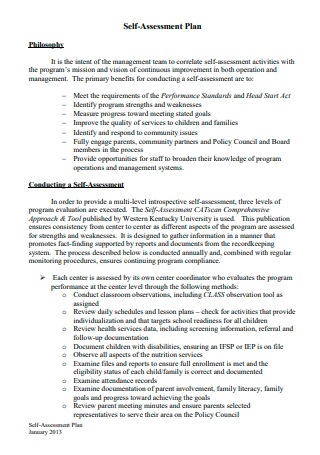
Self-Assessment Plan in PDF
download now -
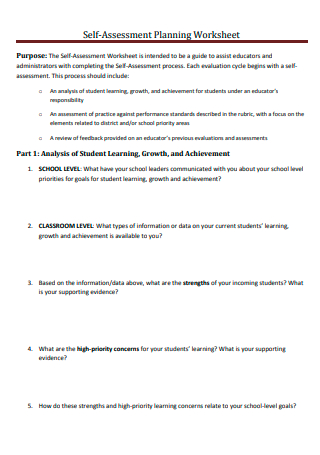
Self-Assessment Planning Worksheet
download now -
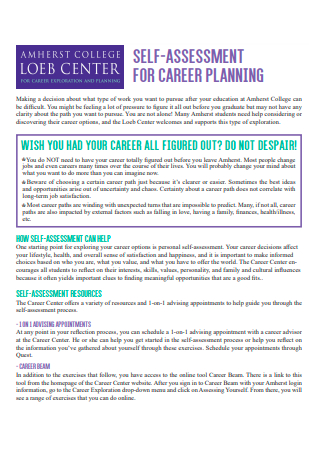
Self-Assessment For Career Planning
download now -
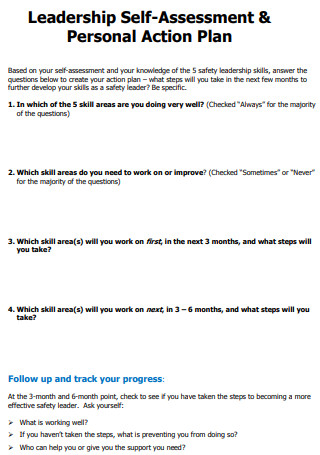
Leadership Self-Assessment and Personal Action Plan
download now -
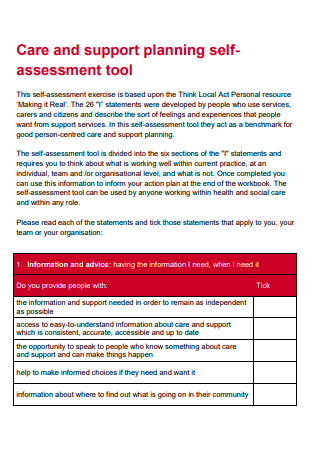
Simple Self-Assessment Planning
download now -
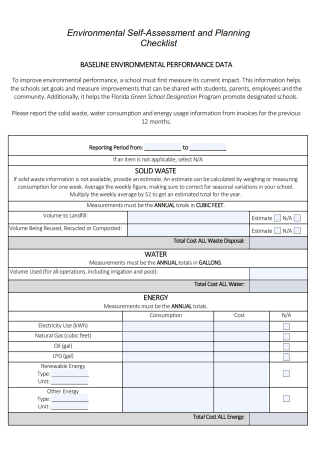
Environmental Self-Assessment and Planning Checklist
download now -
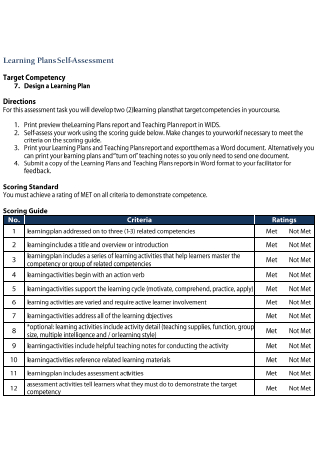
Self-Assessment Learning Plan
download now -
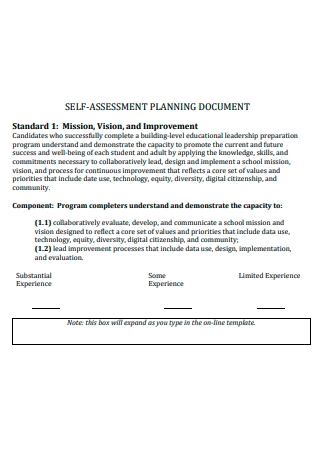
Self-Assessment Planning Document
download now -
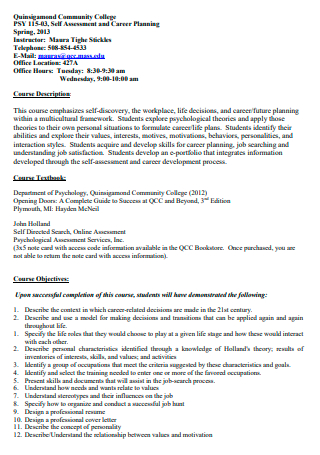
Self-Assessment and Career Planning
download now -
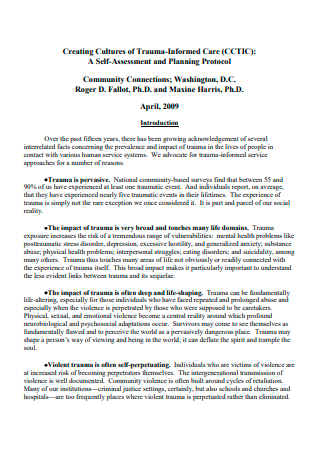
Self-Assessment and Planning Protocol
download now -
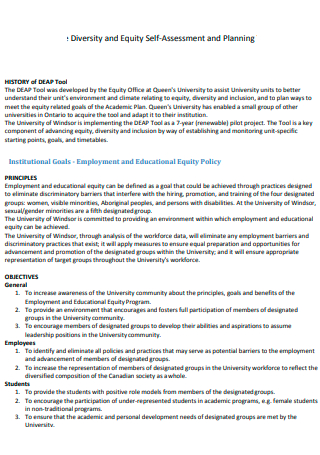
Diversity and Equity Self-Assessment and Planning
download now -
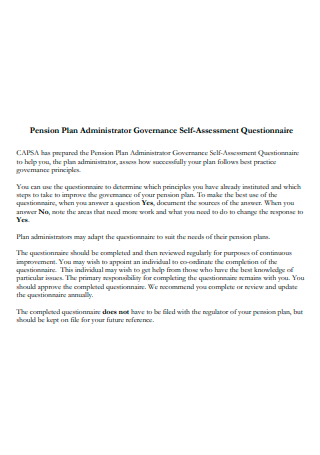
Self-Assessment Questionnaire Pension Plan
download now -
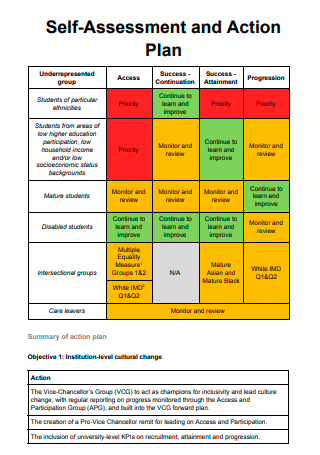
Self-Assessment and Action Plan
download now -
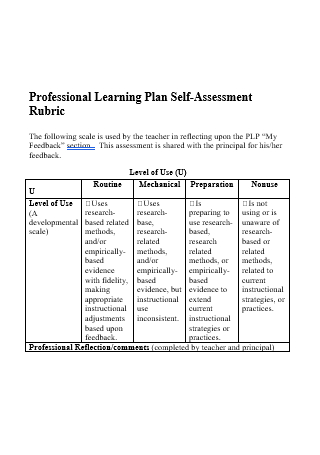
Self-Assessment Professional Learning Plan
download now -
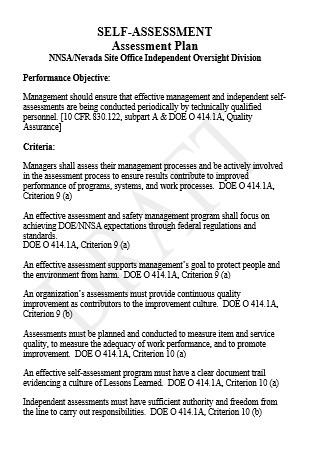
Draft Self-Assessment Plan
download now -
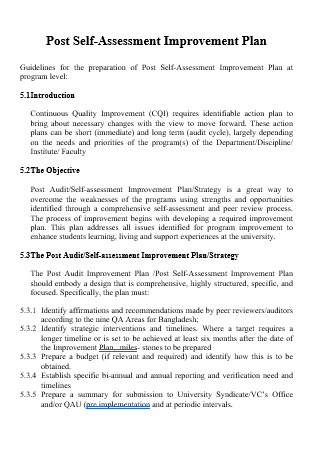
Post Self-Assessment Improvement Plan
download now -
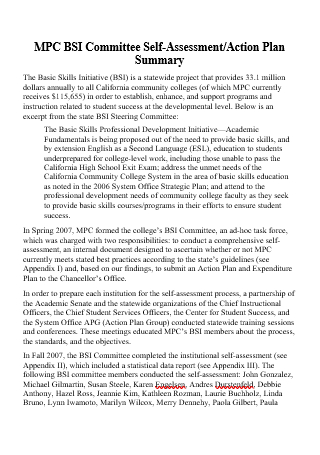
Committee Self-Assessment Action Plan
download now
FREE Self Assessment Plan s to Download
22+ Sample Self Assessment Plan
a Self-Assessment?
Benefits of Self-Assessment For Students
Tips on How To Make Self-Assessment Meaningful
How To Perform Self-Assessment
FAQs
Is it permissible to withhold taxes?
Is it possible to opt out of self-assessment?
How do you respond to a self-evaluation question?
What Is a Self-Assessment?
The term “assessment” belongs to the process of determining or estimating the value of something and making sound decisions about pertinent topics. It is synonymous with words such as evaluation, examination, and so on. Similarly, self-assessment is the capacity to examine oneself to determine one’s progress. It is a skill that enables individuals to explore their work or abilities, ascertain their strengths and limitations, and self-diagnose appropriate solutions. Self-assessment is intended to assist the individual in determining the degree of his skills and improve them without the help of a performance appraiser. It entails using questions such as “what are my strengths?” and “what are my weaknesses?” In specific workplaces, self-assessment is incorporated into the formal employee appraisal process. The employee is permitted to submit their narrative of their development over the previous year. Although some organizations may not value it highly, others do. According to research, self-psychometric evaluation‘s features indicate a trustworthy assessment approach capable of delivering consistent findings across items, tasks, and contexts over short periods. Teachers can bolster their students’ reliability by involving them in rubric construction.
Benefits of Self-Assessment For Students
Assessment is a process that involves the acquisition and development of skills and knowledge. An evaluation is always accompanied by various learning, choosing, and analyzing methods according to its subject. A student must learn appropriately to achieve the best possible grade on the exam. As a result, planning is critical for adequate preparation. A proper assessment will always assist you in regaining lost abilities and assisting in acquiring further knowledge. It is, however, challenging to implement without clear aims and objectives. As a result, establish an appropriate goal and purpose to ensure the best assessment and outcome in the future. We shall examine the most acceptable benefits of evaluation for learning in various methods in this blog.
Tips on How To Make Self-Assessment Meaningful
1. Make an effort to improve.
Naturally, your manager will enjoy it if you are continually learning, adapting, and changing. It is critical to never stagnate during a self-assessment. Whether you’ve experienced excellent outcomes or heartbreaking failures, you should remain committed to self-improvement and education. A self-assessment listing all of your aims and ambitions for the future year demonstrates that you are not content to settle. Your management will view your eagerness to learn and try new things as a sign of coachability. According to research, 96% of those who attempt to improve themselves fail.
2. Take pride in yourself
Career self-evaluation entails critiquing your performance, recognizing your accomplishments, and reminiscing about critical moments in your professional development. Do not be afraid to add particular activities and projects that demonstrate your most excellent work to your self-evaluation document. Emphasize their impact on the entire business to prove their worth to the organization.
3. Compile and organize
Make a list of all the work you’ve completed in the last year. Compile a list of all the projects you’ve finished, committees on which you’ve served, and reports you’ve authored. By documenting your accomplishments, you can consider how they relate to your goals. Utilize these thoughts to ensure that everything is appropriately phrased.
4. Include specifics and prioritize
Emphasize your accomplishments and provide all concrete evidence that demonstrates what you accomplished over the year. While supervisors are typically aware of your overall performance, having precise data and evidence increases the validity of your self-assessment. Prioritization is critical for assessing and evaluating future objectives and aligning your outcomes with annual goals and organizational imperatives. Include any unexpected initiatives that arose over the year to demonstrate your adaptability. If you have a significant number of successes, concentrate on organizing them into 2-4 buckets.
5. Employ a professional tone and emphasize how you set yourself apart from the competition.
Self-assessment is not a pleasurable activity. Each employee should conduct themselves professionally when writing this document for management. Avoid blaming and criticizing others for making your life more complex, and refrain from criticizing your supervisor for lousy leadership qualities. In any event, the primary criterion for offering critical or positive comments should be your professionalism. Additionally, combine your distinct abilities and strengths to demonstrate how you approach relationships and projects uniquely. It can encompass a range of abilities, from creative thinking to advanced research and analytical skills. Take note of how you distinguish yourself inside the organization by what you do and how you do it.
How To Perform Self-Assessment
Consider conducting a regular self-assessment as part of your development plan to keep track of your performance in the job, your successes, the additional education you pursued during your employment, and your overall growth and development over your tenure at the organization. Also, you may choose to explore the procedures outlined below for conducting your self-evaluation.
Step 1 Include the necessary components.
Self-evaluation assessments contain numerous critical components that will assist you in developing a relevant statement about your contributions to the firm. A self-evaluation may include factors such as your success and accomplishments in your role, the process by which you obtained your success, critiques of your work habits, your strengths and weaknesses, and your production that could be improved. Likewise, you might include a request for input from your management or employer.
Step 2 Establish a timetable for your self-evaluation.
Create a chronology of the events you wish to mention in your evaluation. You can keep track of your progress on an annual, monthly, or even weekly basis. Consider supporting a notepad, spreadsheet software, or another technique of noting your accomplishments as they occur. Also, keep track of the dates and times when you completed projects that exceeded expectations or had a good conference meeting. Specific instances of times when you achieved something might be a valuable technique to bolster your self-points.
Step 3 Provide context for your success.
A self-evaluation assessment can be used to demonstrate your successes and professional progress. Describe your best projects, as well as the tasks and initiatives you’ve performed that match with the company’s main objective. Prioritize the projects that have added the most value to your organization. Similarly, if you worked collaboratively with colleagues to complete a project, make a point of mentioning it in your review.
Step 4 Give instances of your advantages and disadvantages.
When conducting a self-evaluation, consider your strengths and how they contributed to your achievement. Attempt to be as specific as possible about your work as an employee. For instance, if you assisted in launching a project that would have been unsuccessful without your assistance, include that information in your review. For example, perhaps you gained more cash or resources for the project that would not have been available had you not requested them. Consider discussing your faults in addition to your strengths. List your shortcomings in a way that emphasizes how you want to improve them. For instance, if you believe your data entry abilities are a weakness in your performance, mention them in your self-evaluation along with a plan for improving them.
Step 5 Draw attention to your growth mentality.
A self-assessment is critical for demonstrating your willingness to grow and improve as an employee. You can always learn from others that will help you grow as a valued asset to your team, administration, and company. Finding opportunities for advancement and professional development can be advantageous to your career. Consider addressing your long-term career goals, your objectives for satisfying job requirements, and your strategy for continuing your professional development. By demonstrating a growth mindset in your self-assessment, you may explain to your employer how much you desire to grow with the firm. Similarly, a growth mentality can equip you with the confidence necessary to overcome hurdles in your job.
Step 6 Give an honest assessment and maintain a professional demeanor.
While acknowledging and documenting your accomplishments is crucial for self-evaluation, consider being as candid as possible with yourself. Your self-evaluation should focus on the facts of your career accomplishments as well as areas where you may need to improve. Likewise, avoid exaggerations and remain aware of how others see and interact with you. Be candid in your writing about yourself and avoid using harsh language. Internal perceptions can affect how others see you during an evaluation. Also, when doing your self-evaluation, keep your audience in mind. If you intend to communicate your assessment to your company, consider formal language rather than a casual and conversational tone. Concentrate on your production and provide an accurate review of yourself. Your self-assessment is intended to highlight your career development. If you include criticisms or details about your coworkers, team members, or other coworkers, you risk losing focus on your assessment aims while also appearing unprofessional.
FAQs
Is it permissible to withhold taxes?
In general, it is criminal to withhold income taxes willfully. Such conduct constitutes the criminal offense of “tax evasion.” Tax evasion is defined as an action in which an individual purposefully defrauds or avoids paying income taxes to the IRS using illegal ways.
Is it possible to opt out of self-assessment?
Receive a notification to file a tax return and do not believe you are required to do so, for example, because your tax affairs have become less complicated. You can contact HMRC and request that the tax return be withdrawn and that you be removed from self-assessment in the future.
How do you respond to a self-evaluation question?
Be explicit and descriptive of your work’s positive and negative characteristics. Always analyze both the positive and negative aspects of your performance in each of the areas. Determine areas where you exceeded expectations, places where you met them, and locations and ways in which you can continue to grow.
Self-assessment writing does not have to be a terrible duty. Prepare ahead of time, compile statistics whenever possible, and emphasize the positive and developmental, and you’re sure to impress. Not only that, but you’ll gain from reflecting on the year in a way that acknowledges your achievements and directs you toward self-improvement.
